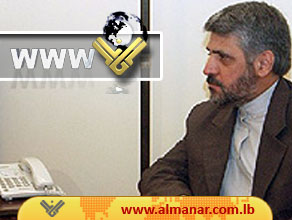Exclusive Interview with Iranian Ambassador to Syria Mohammad Reza Sheibani about regional situations.
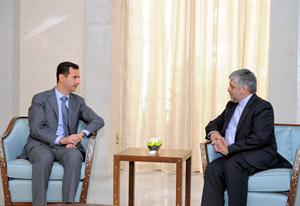
The region witnesses today what is beyond “a revolution.” Arab revolutions with all their different circumstances and consequences on the Arab and regional states, are shaded by the West’s meddling which aims at investing them to serve interests in the area.
Assistant of Iranian Foreign Minister, Mohammad Reza Sheibani believes in this argument. Yet, the result of such situation does not take the safe direction. Here below is an interview with Sheibani, the first of its kind since his appointment as the Iranian Ambassador to Damascus about a month ago.
Q: To where the situation in Syria is going, amid some statements that suggest escalating, like that of the Arab League Secretary-General, who warned of a disaster that may engulf the region and the world shouldn’t the terms of the Arab initiative be implemented?
Ambassador Sheibani: Given the characteristics of Syria, both geopolitical and geostrategic, any development in this country - no doubt - will cast a shadow on the regional states. Moreover, the role played by Syria has been obvious to political observers over the past decades. In this regard, any change in the political geography and social affairs in Syria will not only have profound effects on the region, but also will extend beyond it.
The presence of various ethnic groups in this country, each of which stretches beyond the Syrian borders, Syria’s location which neighbors the Zionist entity, the situation of Occupied Palestine which is directly influenced by Syrian political will and conditions on ground, in addition to the current capacities of Lebanon and the interrelation of its developments with that of Syria via all its various political, social, economic, and military dimensions, as well as neighboring Syria to Iraq which everyone knows its political, social, economic and military situations in recent years – along with Syria’s location on the Mediterranean Sea as a security margin for Europe, all that should be took into account in the political-security equations and in any development or change in Syria.
From this point, political observers who are experts in regional affairs, express their sensitivity about developments in Syria and warned of blatant foreign interference in its affairs. I think the international community – as well as the regional states – should give serious consideration to the points mentioned above, in order to avoid any decisions that would speed up the developments in the region towards dangerous slip.
It seems to me from the actions and practices of some regional and international parties that regional affairs will not turn to a safe trend.
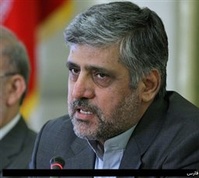 Q: Do you expect a NATO military step against Syria? In case it happens, what your stance would be?
Q: Do you expect a NATO military step against Syria? In case it happens, what your stance would be?
Ambassador Sheibani: For various reasons – which couldn’t be dealt with here - NATO will not repeat its experience of Libya via military action in Syria. Many military and political observers believe that if the West has committed this error, it will undoubtedly pay a heavy price. Syria's geographical location and strategic influence on its surroundings especially the direct consequences resulting from this location on the occupied Palestine, must be taken into account in any decision-making process of military intervention. Islamic Republic of Iran has declared that it rejects any foreign interference in the Syrian affairs, whether political or military. In this context, Iran will announce its practical stances when new conditions emerged. Up till then, every session has a different discussion.
Q: How do you read the difference in Turkey's attitude towards the Syrian regime? Before the beginning of current events relations were marked as friendly between both parties, however, after the protest began, Turkish Prime Minister Recep Tayyip Erdogan started to launch statements demanding the ouster Assad regime and a stop to what he called the violence in Syria.
Ambassador Sheibani: In order to confirm Turkey’s declaration at the beginning of the new phase of its regional policy to reset its problems with neighboring countries, it is assumed that the role of neighboring countries based on the assistance in strengthening regional calm and stability. Taking stances that lead to the expansion of instability will not be in the interest of the region and its countries.
During our talks with our Turks friends, we have repeatedly emphasized the need to develop a joint regional cooperation to overcome the current critical phase; because taking extremist and strict stances ahead of that of the Syrian citizens will not help in solving the problem, but it will exacerbate it instead.
Q: Recent report of the International Atomic Energy Agency (IAEA) raises many questions about the possible scenarios in case of international efforts and Western sanctions against the Islamic Republic fail. The available options for the West today are either a military action to halt Iran's nuclear program or at least delay it, or to get along with a nuclear Iran and the balance of power in the Middle East. Do you entirely rule out a military operation against Iran?
Ambassador Sheibani: For the West, the only scenario towards Iran's nuclear program is to recognize the Islamic Republic of Iran as a nuclear state. Nuclear Iran has been recognized in the region as a reality. Iran has repeatedly stressed the peaceful nuclear program and is still moving forward with full toughness towards peaceful use of nuclear energy as a right granted to the peoples of the world.
Unfortunately, the IAEA turned away from its professional responsibility by involving political motives in professional affairs. The location of Iran and its own capacities do not allow anyone to just even imagine having confrontation with the Islamic Republic of Iran.
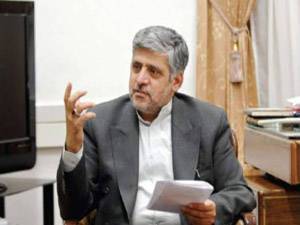 Q: In case the West does not take military actions against Iran, and would be reluctant to accept it as a nuclear state, there must be other alternative means to war planned by the American and the Israeli. Do you think there are efforts to take the fight to inside Iran by exploiting the Iranian consensus over the nuclear program? Are you prepared for a scenario of this kind, and how?
Q: In case the West does not take military actions against Iran, and would be reluctant to accept it as a nuclear state, there must be other alternative means to war planned by the American and the Israeli. Do you think there are efforts to take the fight to inside Iran by exploiting the Iranian consensus over the nuclear program? Are you prepared for a scenario of this kind, and how?
Ambassador Sheibani: Trying to benefit from meddling in the internal affairs of Iran via some paid elements is no longer feasible. The U.S. has tested various tools through exerting political, military and security pressures for more than three decades since the victory of Islamic Revolution and up till now. Yet, they all ended in abject failure.
Undoubtedly, the extent of American officials’ stupidity is not secret, for this we still do not rule out that the West may use fruitless tools, which had already proved unsuccessful in Iran. In any case, Iran's Islamic community - thanks to public awareness - has become immune to Western and American conspiracies.
Q: Where is the issue of the Iranian Mansour Arbab Sear who has been detained by the U.S authorities on charges of planning to assassinate Adel al-Jubeir, the Saudi ambassador to Washington?
Ambassador Sheibani: I believe the U.S indictment of Iran is nothing but an artificial scenario – created by the Americans in collaboration with the Khalq hypocrites in order to 1) raise the dust to distract public opinion from the heinous defeat and shameful withdrawal of U.S. troops from Iraq, 2) affect the regional relations of the Islamic Republic of Iran with neighboring countries, especially Saudi Arabia, 3) distort the public opinion from the multiple internal U.S. problems, the economic crisis in particular, 4) throw dust in the public eyes to cover up the successive defeats of the U.S. Administration Middle Eastern policies, 5) engage the Islamic Republic of Iran in security issues to prevent the strengthening of its regional position amid the popular uprisings in the area, particularly in Egypt, Tunisia and Libya, in addition to many other objectives.
Q: How do you read the US occupation army withdrawal from Iraq by the end of the year? Do you think Washington will act to cover the withdrawal?
Ambassador Sheibani: The U.S. withdrawal and ending the occupation of this great Arab country signifies the defeat of U.S. policies in Iraq. In fact, this withdrawal simulates the escape of Zionist occupying soldiers from southern Lebanon in 2000. To cover up the defeat, the U.S. takes actions to cause harm, in an attempt to punish the regional elements of this defeat and, at the same time, fabricates events to distort the attention of public opinion from the broader dimensions of its defeat.
In this regard, we can refer to the various political and security pressures over the Islamic Republic of Iran, and the crisis escalation in Syria through taking benefits from the Arab League.
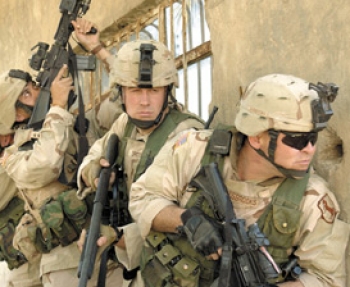 Q: You've recognized the Libyan Transitional National Council as an official authority in the country; do you think this Council will be able to maintain sovereignty in Libya, especially as he had resorted to the NATO forces to overthrow Muammar Gaddafi?
Q: You've recognized the Libyan Transitional National Council as an official authority in the country; do you think this Council will be able to maintain sovereignty in Libya, especially as he had resorted to the NATO forces to overthrow Muammar Gaddafi?
Ambassador Sheibani: I wish success to the Transitional National Council of Libya. This significant Arab country faces difficult conditions in his political future. The effective presence of the West within NATO – with its colonial trend - creates challenges for the future of Libya.
Q: Thanks to Resistance, 1075 Palestinian prisoner have been liberated, and Palestine has been recognized as a UNESCO member as well due to the diplomatic efforts made by Palestinian Authority; in your opinion, whichever is more useful today for Palestine, resistance or diplomacy?
Ambassador Sheibani: Over sixty years ago, history of Palestine had proved that Resistance is the only and best way to restore the Palestinian people’s rights. Occupied Palestine and its brave people are entitled to regain their rights through resistance. In Palestinian history, there isn’t even one single example showing the retrieval of the lowest Palestinian right through negotiations.
Moreover, the achievements, which were scored by the resistance, had forced the Zionist entity, day after day to retreat and abandon its expansion slogans and tendency to dominate. Undoubtedly, the West and allied elements are trying to deviate Palestinian people’s movement from track, through fake concessions and political reforms, and declaring them as strategic achievements in order to deter the great popular movement from trying to achieve its main objectives. However, the history has shown that the Palestinian people is more aware than other peoples of its rights and following them up until fulfillment.
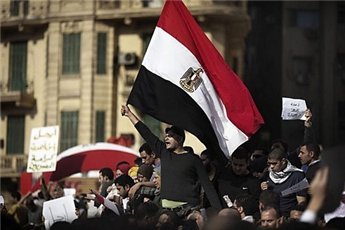 Q: Can we assess the popular movements of the Arab world from the same angle? Do not you think the West can re-control those revolutions, especially amid the absence of a clear and strong leadership?
Q: Can we assess the popular movements of the Arab world from the same angle? Do not you think the West can re-control those revolutions, especially amid the absence of a clear and strong leadership?
Ambassador Sheibani: That what happened in the region, particularly in Egypt, Libya and Tunisia is a major movement that will lead to the collapse of many traditional equations in the region. Egypt's entry into the circle of popular movements and overthrowing Mubarak’s regime as an element subordinate to the West and U.S. is a blessed event that will later enhance the real role of this country in formulating the popular policy in the region.
No doubt that the West is trying to deviate this great popular movement, which requires vigilance and awareness in this regard. Supreme Leader of the Islamic Revolution has delivered an important and strategic speech at the opening session of the Islamic Awakening conference in Tehran presents the right road map and an inspiration to us that illuminates the future horizons of Arab societies, which has witnessed recently a popular movement.
Q: How would you evaluate Iranian-Egyptian relations after the fall of Hosni Mubarak’s regime?
Ambassador Sheibani: We well understand the circumstances prevailed in Egypt. What is important for the Islamic Republic of Iran is that Egypt regains its original position in the region to play the role emerged from the will of its own people. As an expert who deeply knows the prevailing thought among the dear people of Egypt, I predict a bright future for relations between the two countries.
Q: How do you read the Qatari role in each of Libya, which witnesses a direct Qatari interference, and Syria which Qatar wages a war of media against its regime since the beginning of the crisis?
Ambassador Sheibani: Many observers believe that Qatar could play a better role for the settlement of regional issues. The region still remembers the Qatari role in solving Lebanon's crisis, as well as its role in removing the effects of the Zionist aggression on the country. This role can appear in the current developments in Syria as well. In other words, Qatar can be a part of the solution for current problems in the region.
Interviewed by: Somaya Ali
